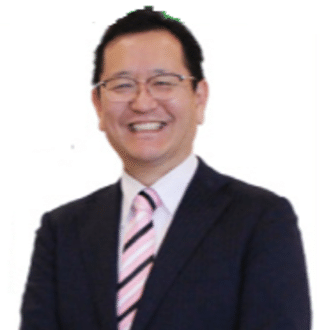
フョードル・ルキャノフ:トランプ2.0が米国とロシアに何を意味するか/RTを読む
Fyodor Lukyanov: Here’s what Trump 2.0 means for the US and Russia
フョードル・ルキャノフ:トランプ2.0が米国とロシアに何を意味するか
The 47th president wants to end conflicts but not resolve them
第47代大統領は紛争を終わらせたいが解決は望んでいない
The flood of headlines about US President Donald Trump’s first days back in the White House are stunning but unsurprising. We have grown accustomed to his hyperactivity. Yet, unlike eight years ago, the reaction now feels different. Back then, Trump’s ascent was widely regarded as a political anomaly – a shock that many attempted to explain by pointing the finger at alleged Russian meddling. Trump himself seemed caught off guard by his unexpected victory.
ドナルド・トランプ米大統領がホワイトハウスに復帰した最初の数日間に報道されたニュースの洪水は衝撃的だが、意外ではない。私たちは彼の多動性に慣れてしまっている。しかし、8年前とは違って、今の反応は違うように感じる。当時、トランプ氏の台頭は政治的異常と広くみなされていた。その衝撃を、多くの人がロシアの干渉疑惑に責任をなすりつけて説明しようとした。トランプ氏自身も、予想外の勝利に不意を突かれたようだ。
Today, the picture has changed. The Republican’s return to power is no accident; it is a deliberate comeback. He carries himself with an air of inevitability, bolstered by a party now united under his leadership and an establishment that, reluctantly or otherwise, has adjusted to his dominance. With control of Congress and a handpicked team ideologically aligned with him, Trump has two years to pursue his vision with minimal resistance. This time, his rhetoric could very well translate into reality.
今日、状況は一変した。共和党の大統領が政権に復帰したのは偶然ではなく、意図的なカムバックだ。彼は、彼のリーダーシップのもとに団結した党と、不本意ながらも彼の支配に順応した体制に支えられ、必然的な雰囲気を漂わせている。議会を掌握し、イデオロギー的に同調する厳選されたチームを擁するトランプには、最小限の抵抗でビジョンを追求する2年間がある。今回は、彼のレトリックが現実になる可能性は十分にある。
Trump’s worldview has been consistent for decades. Public declarations from the 1980s, long before his political career began, reflect the same core beliefs he holds today. Trump’s ultimate goal is American supremacy – but not the liberal global leadership championed by his predecessors. His version of supremacy is transactional and utilitarian. Alliances, institutions, and relationships are only valuable if they benefit the US materially. Those that demand sacrifices without offering returns are liabilities to be discarded.
トランプ氏の世界観は数十年にわたって一貫している。彼の政治キャリアが始まるずっと前の1980年代の公の声明は、彼が今日抱いているのと同じ核心的な信念を反映している。トランプ氏の究極の目標は米国の覇権であるが、それは前任者たちが主張したリベラルな世界的リーダーシップではない。彼の覇権観は取引的かつ実利主義的である。同盟、制度、関係は、米国に物質的な利益をもたらす場合にのみ価値がある。見返りを与えずに犠牲を要求するものは、捨てるべき負債である。
Trump’s America is not interested in moral authority, global stability, or solving the world’s problems. It is focused on extracting the maximum benefit from every interaction, whether in economics, security, or politics. If others refuse Trump’s ‘deal’, coercion quickly becomes his preferred strategy.
トランプ氏のアメリカは、道徳的権威や世界の安定、世界の諸問題の解決には関心がない。経済、安全保障、政治など、あらゆる交流から最大限の利益を引き出すことに重点を置いている。他国がトランプ氏の「取引」を拒否すれば、すぐに強制がトランプ氏の好む戦略となる。
Averse to war, partial to economic combat
戦争を嫌い、経済戦争を好む
While Trump champions a tough, combative approach, he is reluctant to engage in armed conflict. This is not due to pacifism but practicality. Trump the developer views war as wasteful and counterproductive. Destruction does not align with his instincts to build and acquire assets. For him, conflict is best resolved through negotiation, merger, or purchase – not devastation.
トランプ氏は強硬で戦闘的なアプローチを主張しているが、武力紛争に関与することには消極的だ。これは平和主義のためではなく、実用性のためだ。開発者であるトランプ氏は、戦争は無駄で逆効果だと考えている。破壊は、資産を建設し獲得するという彼の本能とは一致しない。彼にとって、紛争は交渉、合併、買収によって解決するのが最善であり、破壊ではない。
This aversion to military conflict explains his preference for economic warfare. Trade wars and aggressive negotiations are his tools of choice, often targeting close US allies rather than adversaries. This approach unnerves traditional partners and challenges the post-Cold War ‘rules-based’ international system, where alliances are valued for their collective stability. Trump sees no inherent value in these alliances unless they provide tangible benefits to the US.
軍事紛争を嫌うこの姿勢は、経済戦争を好むトランプ氏の理由でもある。貿易戦争と強硬な交渉はトランプ氏が好んで使う手段であり、敵国ではなく米国の親しい同盟国を標的にしていることが多い。このアプローチは伝統的なパートナーを不安にさせ、同盟の総合的安定が重視される冷戦後の「ルールに基づく」国際体制に疑問を投げかける。トランプ氏は、米国に具体的な利益をもたらさない限り、こうした同盟に本質的な価値はないと考えている。
Implications for Russian-US relations
ロシアと米国の関係への影響
For Russia, Trump’s return brings mixed prospects. On the one hand, Trump’s disdain for the liberal world order signals a departure from the ideological rigidity of previous administrations. The post-Cold War system often dismissed Russia’s national interests in favor of US-centric global dominance. In contrast, Trump’s ‘America First’ policy focuses on national interests, which opens the door for pragmatic deals based on mutual benefit.
ロシアにとって、トランプ氏の復帰は複雑な見通しをもたらす。一方では、自由主義の世界秩序に対するトランプ氏の軽蔑は、前政権のイデオロギー的硬直性からの離脱を示している。冷戦後の体制では、米国中心の世界支配を優先し、ロシアの国益を無視することが多かった。対照的に、トランプ氏の「アメリカ第一主義」政策は国益に焦点を当てており、相互利益に基づく実際的な取引への扉を開く。
However, Trump’s approach remains deeply flawed. He is uninterested in addressing the root causes of conflicts. In Ukraine, for example, his goal is not a comprehensive resolution but a simple cessation of hostilities. A stable ceasefire along existing lines would suffice for him, leaving the deeper security issues for Western Europe or others to resolve. For Russia, this falls short. Moscow seeks a long-term solution that addresses the imbalance in European security – a concern Trump is unlikely to prioritize.
しかし、トランプ氏のアプローチには依然として大きな欠陥がある。彼は紛争の根本原因に取り組むことに関心がない。例えばウクライナでは、彼の目標は包括的な解決ではなく、単なる敵対行為の停止だ。彼にとっては、既存の路線に沿った安定した停戦で十分であり、より深刻な安全保障上の問題は西欧諸国または他の国々に解決を任せることになる。ロシアにとって、これは不十分だ。モスクワは、ヨーロッパの安全保障の不均衡に対処する長期的な解決策を求めているが、トランプ氏が優先する可能性は低い懸念事項だ。
Trump’s disinterest in complex international designs further complicates matters. He prefers straightforward deals, as evidenced by the Abraham Accords in the Middle East. These agreements worked because they bypassed entrenched historical disputes in favor of pragmatic, economically driven solutions. However, applying this model to Ukraine is unrealistic. The conflict’s deep historical and geopolitical roots require a level of nuance and patience that Trump lacks.
トランプ氏が複雑な国際情勢に興味を示さないことが、事態をさらに複雑にしている。同氏は中東のアブラハム合意に見られるように、単純な取引を好む。こうした合意がうまくいったのは、根深い歴史的紛争を回避し、現実的で経済的な解決策を選んだからだ。しかし、このモデルをウクライナに適用するのは非現実的だ。この紛争の深い歴史的、地政学的ルーツには、トランプ氏には欠けている程度の繊細さと忍耐力が必要だ。
Transactional leadership
トランザクションリーダーシップ
Trump’s transactional leadership style also extends to his perception of governance. He measures other governments not by their ideology but by their efficiency and willingness to align with US interests. Leaders who reject his advice or fail to meet his standards are dismissed as incompetent. While this approach is less ideologically driven than previous administrations, it still results in the US dictating terms to other nations, often disregarding their sovereignty.
トランプ氏の取引型リーダーシップスタイルは、統治に対する認識にも及んでいる。彼は他国の政府をイデオロギーではなく、効率性と米国の利益に沿う意欲で評価する。彼のアドバイスを拒否したり、彼の基準を満たさなかったりするリーダーは無能として退けられる。このアプローチは以前の政権ほどイデオロギーに左右されないが、それでも米国が他国に条件を押し付け、しばしばその主権を無視する結果となっている。
This attitude underscores a continuity in American foreign policy: The belief that the US has the right to define the ‘legitimate interests’ of other nations. Trump may abandon the ideological justifications of his predecessors, but the outcome – a US-centric worldview – remains unchanged.
この姿勢は、米国外交政策の継続性を強調している。つまり、米国には他国の「正当な利益」を定義する権利があるという信念だ。トランプ氏は前任者たちのイデオロギー的正当性を放棄するかもしれないが、その結果、つまり米国中心の世界観は変わらない。
A New era in international relations
国際関係の新時代
Trump’s return marks the beginning of a new era in global politics. His presidency is not an anomaly but a reflection of broader sociopolitical changes. The old model of global leadership, symbolized by Joe Biden’s fading presidency, has run its course. Trump’s disruptive approach may rationalize politics by prioritizing national interests, but it also sharpens contradictions and risks creating confusion.
トランプ氏の復帰は、世界政治における新時代の幕開けを告げる。彼の大統領職は異例なものではなく、より広範な社会政治的変化の反映である。ジョー・バイデン氏の衰退しつつある大統領職に象徴される、グローバルリーダーシップの旧モデルは、その役割を終えた。トランプ氏の破壊的なアプローチは、国益を優先することで政治を合理化するかもしれないが、同時に矛盾を鮮明にし、混乱を生むリスクもある。
For Russia, Trump’s pragmatism offers opportunities and challenges. While his disdain for liberal ideology aligns with Moscow’s critiques of the West, his lack of interest in addressing systemic issues limits the potential for meaningful collaboration. Trump’s focus on short-term gains and his tendency to dictate terms may lead to friction, even as he seeks to avoid direct confrontation.
ロシアにとって、トランプ氏の実用主義はチャンスと課題の両方をもたらす。リベラルなイデオロギーに対する彼の軽蔑は、ロシアの西側に対する批判と一致するが、体系的な問題に取り組むことへの彼の無関心は、意味のある協力の可能性を制限している。トランプ氏は短期的な利益を重視し、条件を押し付ける傾向があるため、直接対決を避けようとしながらも、摩擦が生じる可能性がある。
Ultimately, Trump’s presidency embodies the logic of a changing world order. As traditional alliances and institutions falter, new dynamics emerge, driven by national interests and pragmatic calculations. Whether this shift leads to greater stability or heightened tensions remains to be seen. One thing is certain: The era of ‘global leadership’ as we knew it is over, and Trump is its most prominent symbol.
結局のところ、トランプ大統領の任期は、変化する世界秩序の論理を体現している。伝統的な同盟や制度が揺らぐ中、国家の利益と現実的な計算によって新たな力学が生まれる。この変化がより大きな安定をもたらすのか、それとも緊張を高めるのかはまだ分からない。確かなことが一つある。私たちが知っていた「グローバルリーダーシップ」の時代は終わり、トランプはその最も顕著な象徴である。
英語学習と世界のニュースを!
いいなと思ったら応援しよう!

